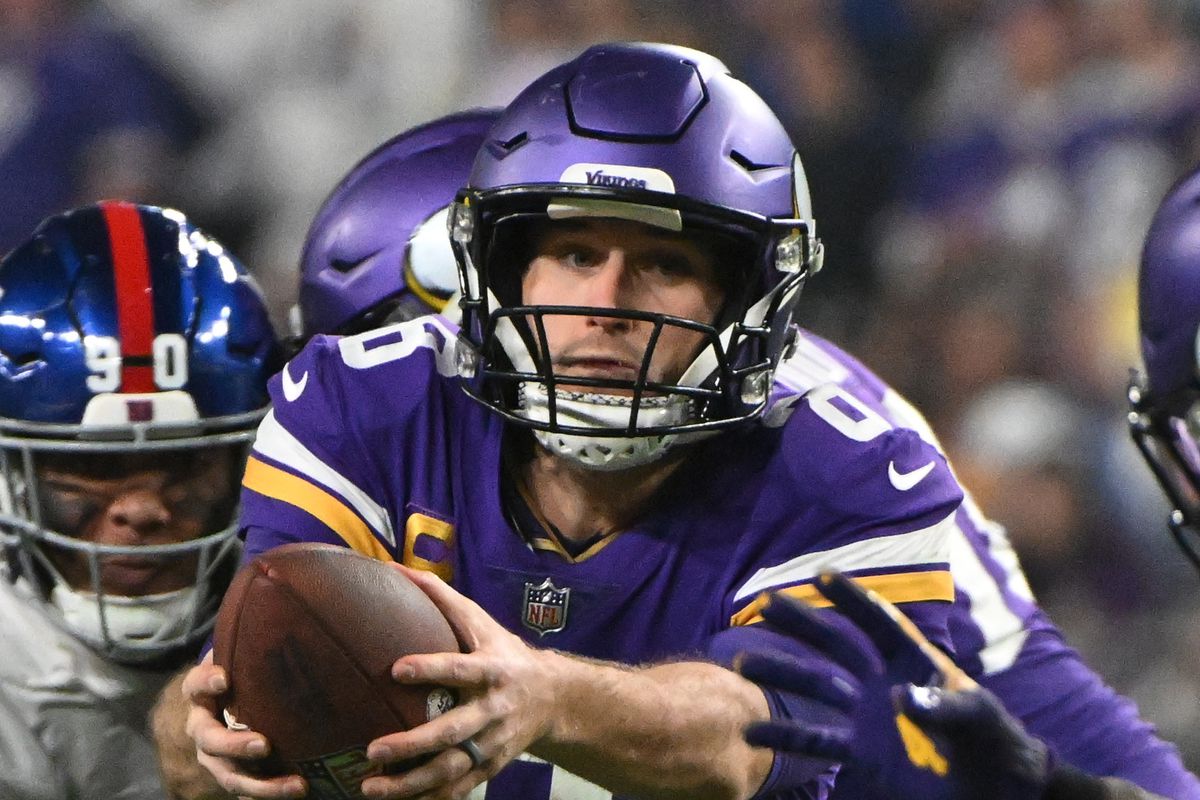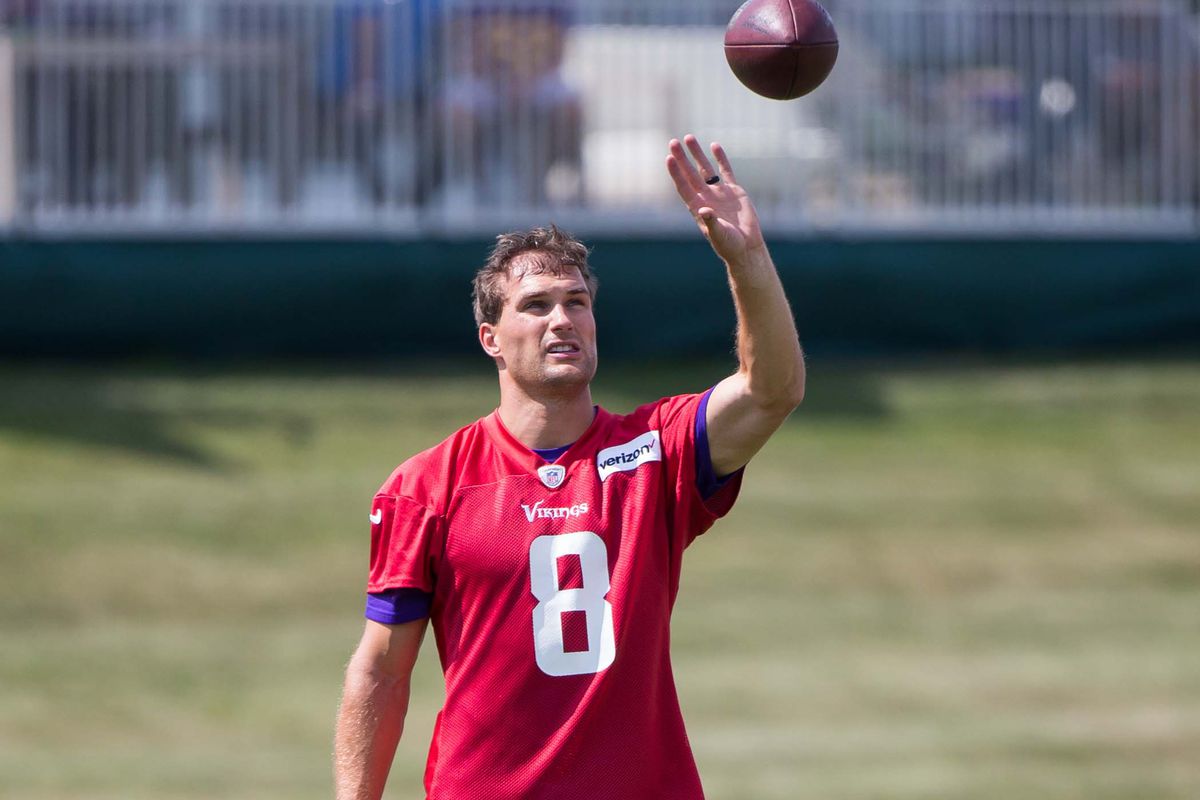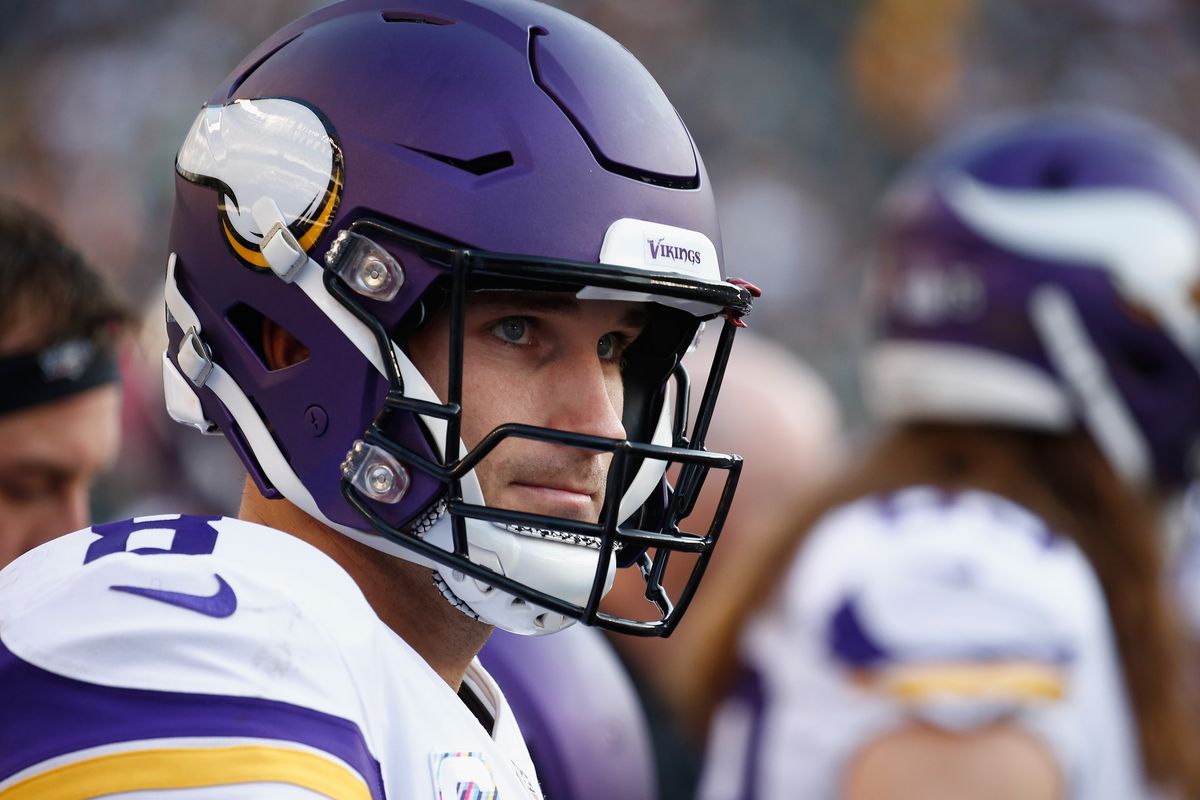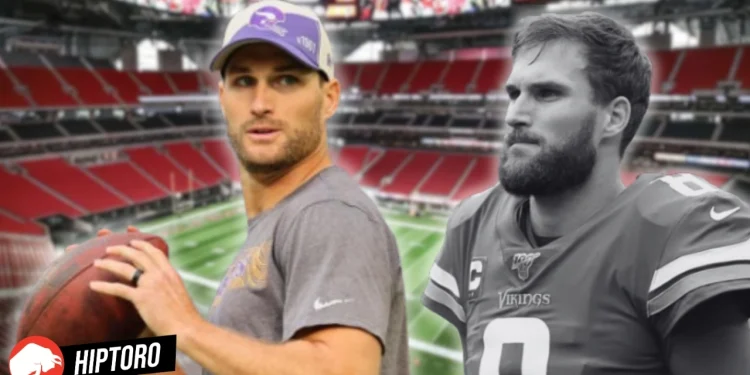In a move that reverberated throughout the NFL, the Atlanta Falcons made headlines by acquiring former Minnesota Vikings quarterback Kirk Cousins. The agreement, a hefty four-year, $180 million contract, promised to mark a new era for the Falcons. Yet, before Cousins could even don the Falcons’ jersey, a shadow was cast over this fresh start due to the quarterback’s own words during his inaugural press conference with the team.
The NFL, a league that prides itself on the integrity of its competition and fairness among its teams, has strict regulations regarding the negotiation periods preceding free agency. Despite a general understanding across the league that certain discussions occur in the gray areas of these rules, Cousins’ candid admission brought an unwelcome spotlight on the Falcons’ recruitment process.

A Costly Admission: Kirk Cousins’ Candid Confession
During his first official appearance as a Falcon, Cousins expressed his enthusiasm for joining the team, inadvertently revealing that he had engaged in discussions with team personnel outside the permitted negotiation window. “There’s great people here,” Cousins remarked, inadvertently igniting a controversy that could have significant implications for his new team.
Now that Atlanta has signed QB Kirk Cousins, Falcons QB Desmond Ridder is expected to be traded, per sources. The Falcons have been discussing a deal with other teams, but there is nothing in place yet. pic.twitter.com/Sf1o17bSs0
— Adam Schefter (@AdamSchefter) March 14, 2024
The essence of the problem lies in the NFL’s tampering rules, which allow for negotiations with players’ agents during a specific window but explicitly forbid direct contact with the players themselves.
Cousins’ acknowledgment of conversations with the Falcons’ head athletic trainer and head of P.R. before the official commencement of free agency crossed this line, placing both the player and the franchise in the league’s crosshairs.
The Shadow of Precedent: Lessons Unheeded from History
This isn’t the first time an NFL team has faced sanctions for premature negotiations. The Kansas City Chiefs’ 2016 penalties for their interactions with wide receiver Jeremy Maclin serve as a stark reminder of the league’s willingness to enforce these rules.
With the Chiefs forfeiting a third-round and a sixth-round pick for their transgression, the Falcons now face the anxious wait to see if their eagerness to secure Cousins will come at a similar cost.

The Unseen Impact: Beyond the Draft Picks
While the potential loss of draft picks represents a tangible consequence of the Falcons’ actions, the intangible effects might resonate deeper within the organization.

The revelation casts a pall over the otherwise celebratory acquisition of Cousins, questioning the team’s adherence to the ethical standards expected by the league and its fans. Additionally, it may strain the newly formed relationships between Cousins and the Falcons’ staff and players, who find themselves at the center of this unwelcome drama.
The NFL’s stance on tampering is clear, aiming to preserve the competitive balance and integrity of the league. Yet, the acknowledgment by Cousins and the implications for the Falcons highlight a pervasive challenge within the NFL: the delicate balance between the unspoken practices of team management and the explicit regulations governing player negotiations.
As the saga unfolds, the Falcons, Cousins, and the NFL find themselves in a narrative that extends beyond the excitement of free agency and into the realms of governance, ethics, and the pursuit of competitive fairness. This incident not only tests the resolve of the Falcons’ new era under Cousins but also serves as a cautionary tale for the league’s other franchises. The allure of securing top talent must be weighed against the imperative of adhering to the rules that ensure the sport’s integrity and the trust of its passionate fan base.

Source: Fansided









